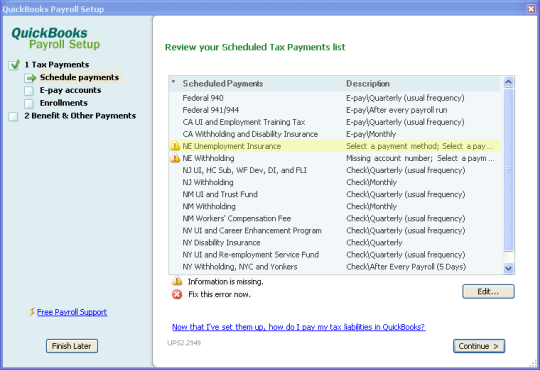


The same is true of professional athletes who play in many states the pay involved is just much higher. Employees must then file in the various non-resident state and claim a credit back in their home state. Example pre COVID-19, a consultant who routinely works in many states likely has to report to their payroll department where they work each day so the company can allocate wages to the various states and then withhold the income tax from such states. States can and do require withholding of their own state’s income taxes for nonresidents frequenting the state for work purposes, but the rules vary. For most individuals, the state withholding requirement is the same state as where they reside for others, this may be a border state, or multiple states if the work required frequent travel. States generally require the withholding of income tax based upon where the work is performed, with limited exceptions such where border states have reciprocal agreements whereby they agree to not tax the income of the residents of the other state as in a “you-don’t-tax-my-residents-and-I-won’t-tax-yours” situation. This has raised the question of possible changes in state income tax requirements, namely will working in a state other than where one traditionally has worked due to a pandemic create an income tax withholding and tax filing requirement in that other state? Remote Work State Withholding Requirements Pre and Post COVID-19Īs the states have extended 2019 tax filing due dates, addressed late filing interest and penalties, some, too, have addressed the remote work impact on income tax withholding requirements. For some, the remote work location (typically at home or possibly in another family member’s home) may be in a state different from where they normally worked. Working remotely has become the new norm for many people due to all the various issues created by the COVID-19 pandemic. Barrett, CPA, Tax Senior Manager | State and Local Tax Team Leader State Tax Considerations for Working Remotely During COVID-19 Pandemic If so, ask if there are steps you can take to soften the blow.By Terry C. If you’ve worked remotely from out of state in 2021, consult your tax advisor to determine whether you’re liable for taxes in both states. But in many other states there’s a risk of double taxation. Some states have agreed not to impose their taxes on remote workers who are present in their state as a result of the pandemic. If that happens, you also may owe tax to the state where you reside, which may or may not be reduced by credits for taxes paid to the other state. Several states have so-called “convenience rules”: If you’re employed by an organization in the state, but live and work in another state for your convenience (not because the job requires it), then you owe income tax to the state where the employer is based. But it’s still possible for remote work to result in higher taxes - for example, if the state where your employer is based, and where you usually live, has no income tax but you work remotely from a state with an income tax.Ī state also may be able to tax your income if it’s derived from a source within the state, even if you aren’t a resident or domiciliary. Many states offer relief from such double taxation by providing credits for taxes paid to other states. It’s possible to be domiciled in one state but a resident of another, which may require you to pay taxes to both states on the same income. A state also may tax your income if you’re a “resident.” Usually, that means you have a dwelling in the state and spend a minimum amount of time there. If you’re domiciled in a state - that is, you have your “true, fixed permanent home” there - the state has the power to tax your worldwide income. Generally, a state’s power to tax a person’s income is based on concepts such as domicile and residence. But the outcome depends on applicable law, which varies from state to state. If that describes your situation, you may need to file tax returns in both states, potentially triggering additional state taxes. One potential consequence of remote work may surprise you: an increase in your state tax bill.ĭuring the pandemic, it’s been fairly common for people to work remotely from another state - across state lines from the employer’s place of business or even across the nation. The COVID-19 pandemic has required many people to work remotely, either from home or a temporary location.


 0 kommentar(er)
0 kommentar(er)
